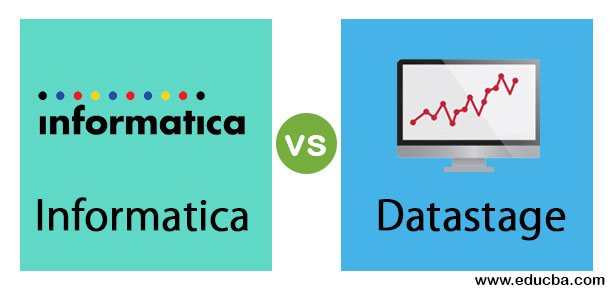Updated March 22, 2023
Introduction to Informatica and Datastage
Informatica vs Datastage are the two industry-leading ETL products that are used for data integration and data management. Informatica has several products such as, Informatica power center and data quality. For most of the data warehouse implementation in the organization, Informatica is a preferred option due to its futilities and features. Similarly, Datastage is a product from IBM and popularly known as the IBM infosphere data stage . Datastage leads with its reliable and advances features for data processing. In terms of salability , user-friendly Datastage is more advanced than Informatica. Whereas for data security and data processing features Informatica is a more preferred ETL tool than of Datastage.
Head to Head Comparison between Informatica and Datastage (Infographics)
Given below are the top comparison between Informatica vs Datastage:
Key differences of Informatica vs and Datastage
Let’s discuss some of the major differences between Informatica and Datastage:
Informatica
- Informatica is known as Informatica power center and it provides ETL processing for applications used in the enterprise-level data warehouse.
- Data can be delivered to the user in a real-time approach.
- It is used for cleaning and modifying a huge amount of data from one system to another.
- Enterprise who needs to set up a data warehouse requires an ETL tool like Informatica to move data from production to data warehouse.
- Error handling is supported partially.
- It offers step by step solution to create data integration.
- It offers reusability to reuse mappings and workflow which will improve performance.
- It offers 30 general transformations to process.
- It supports heterogeneous and homogenous sources.
Datastage
- Datastage plays the role of an interface between different systems. It is used in large organizations. For example, the Banking sector uses Datastage tool.
- In 2005 IBM has acquired with DataStage and it has firstly renamed to the IBM web sphere data stage and then renamed to IBM Infosphere.
- Data can be delivered to the user parallelly.
- It is used for processing and transforming a huge amount of data.
- The source or target is directly connected to the Enterprise.
- Error handling is supported fully or throughout.
- It offers a project-based integration solution.
- It offers reusability of the job but to do this make a copy of the workflow, compile and run.
- It offers 40 general transformation objects to perform any transformations.
- It supports homogenous sources only. The user might end up with the wrong transformation with heterogeneous sources.
Comparison table of Informatica vs Datastage
The comparison table has been explained below:
| Informatica | Datastage |
| Less scalable. | More scalable. |
| Weak partitioning. | Robust partitioning. |
| Can not perform re-partition. | Can perform re-partition. |
| It does not support parallelism. | It supports the full pipeline, data and Component parallelism. |
| It supports flat-file lookup. | It supports hash files, lookup file sets. |
| It will perform the data acquisition process slower than Datastage. | It will perform the data acquisition process faster than Informatica. |
| Fewer security issues. | More security issues. |
| Less user-friendly than Datastage. | More user-friendly than Informatica. |
| It can be deployed on Windows and UNIX operating system but it offers different software for UNIX operating system and for windows have common software. | It can be deployed on Windows and UNIX operating system. |
| Less scalable. | More scalable. |
| Weak partitioning. | Robust partitioning. |
| Can not perform re-partition. | Can perform re-partition. |
| Establish and maintain a Dataware house. | Frequently work with Dataware house. |
| It is available in standard, advanced and premium edition. | It is available in the Server edition, the Enterprise edition, and the MVS Edition. |
| It has a service-oriented architecture. | It has a client-server architecture. |
| It has the following workflow components:
• Informatica administrator • Informatica domain • Nodes • Service manager • Application services • Powercenter repository • Powercenter repository service • Powercenter integration service • Metadata manager service
|
It has the following workflow components:
• General objects • Stages of data quality • Development and debug • Database connection • Restructure • Real-time • Debug and development Sequential activity |
| It does not give the choice to an organization while using Informatica. | It gives a choice to an organization while using Datastage. |
| It is a step-by-step activity. | It is a drag and drop activity. |
| Source and target analysis are done independently. | Source and target analysis are done by clicking on the job. |
Conclusion
We have seen the difference and working of Informatica and DataStage ETL tool. As per the difference and comparison gave above, we can conclude that both the tools are working efficiently in their way. Both tools are providing good services for an organization. It is the user’s choice of which tool to use.
Recommended Articles
This is a guide to Informatica vs Datastage. Here we discuss the introduction to Informatica vs Datastage, key differences with infographics, and comparison table. You can also go through our other suggested articles to learn more–




